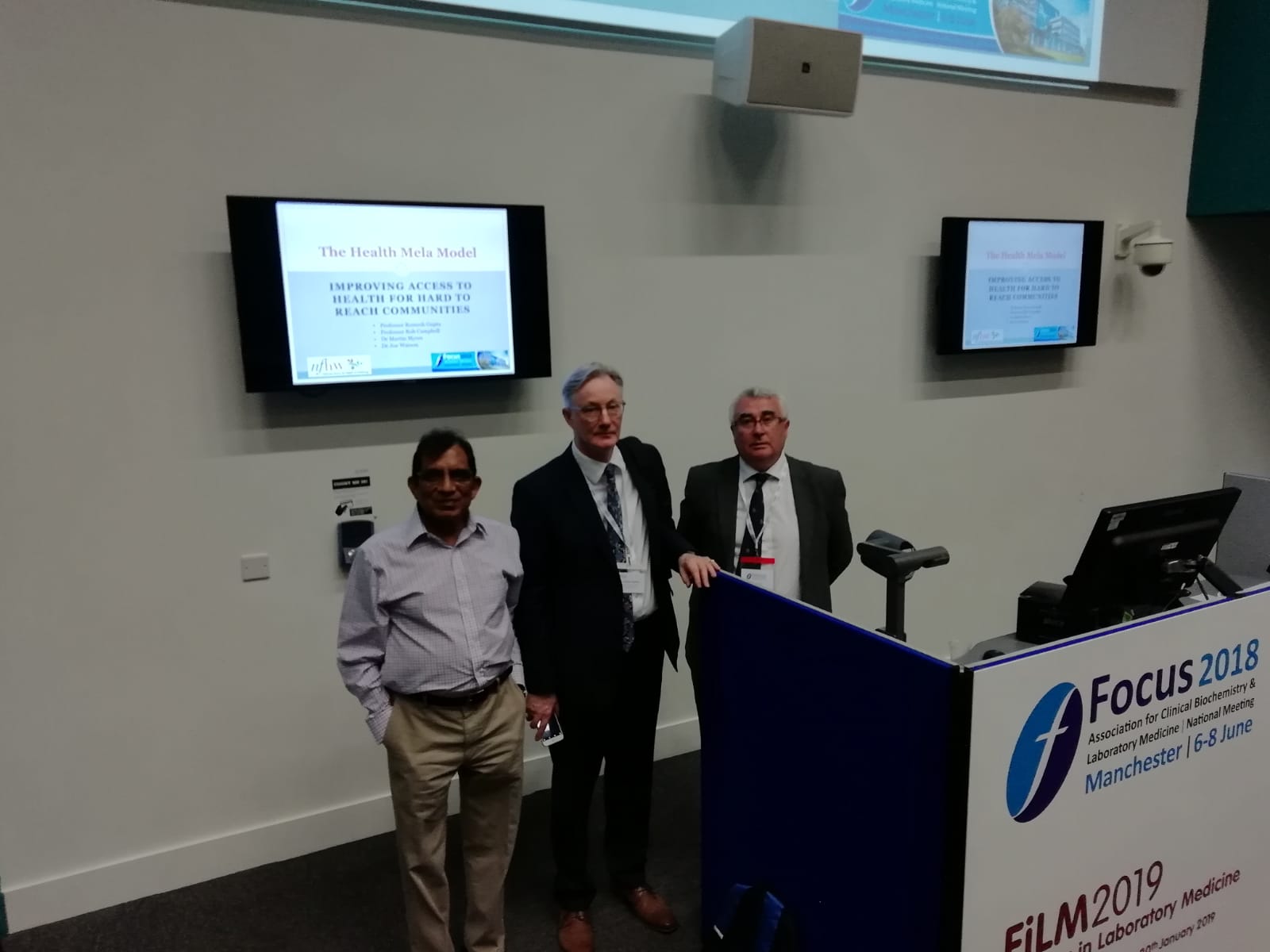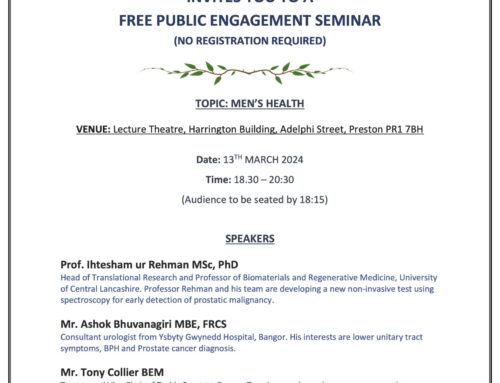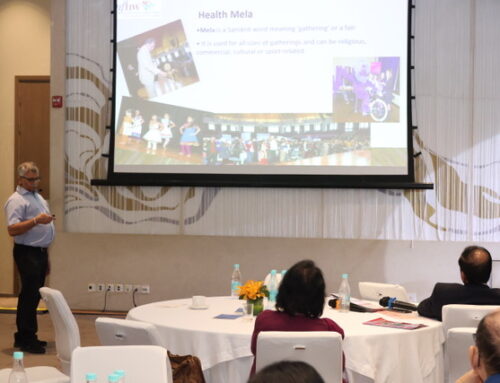Trustees Professor Romesh Gupta OBE, Professor Rob Campbell and Dr Martin Myers MBE and Dr Joseph Watson delivered a paper regarding Health mela model at the Association of the Clinical Biochemists and Lab Medicine at the Manchester Metropolitan University on 7th June 2018.
Below is the abstract.
Improving Access To Health For Hard To Reach Communities: The Health Mela Model
It has long been recognised that many illnesses – such as Diabetes Mellitus, cardio-vascular episodes, chronic kidney disease and hypertension – have higher prevalence in the south Asian community, yet access to health services in the UK by this group is poor.
To address this issue, we developed a model where health services are taken directly to these communities – the Health Mela Model.
Health Melas are unique festivals celebrating community health and wellbeing and since the first one held in Preston in 2002, the National Forum for Health and Wellbeing has organised more than forty across the North West and further afield, establishing a national reputation for excellence in health promotion. They no longer focus solely on the south Asian community but now seek to include all Health Melas bring together individuals, families and communities spanning all ages, races and cultures, to mix with professionals and volunteers representing all aspects of the health spectrum in a holistic approach. This format provides a unique and enjoyable occasion to acquire health related information and enjoy entertainment and refreshment. Visitors also have the opportunity for a personal health check in the form of a Health MOT. This normally consists at least of measurement of blood sugar and cholesterol by health care scientists and the assessment of body mass index (BMI) and blood pressure by trainee clinicians. That information is combined with lifestyle factors and a Q risk score is generated during one to one friendly counselling from health professionals in a relaxed, informal atmosphere. Where there is any indication that further clinical intervention is required, a copy of the results with a covering letter is sent to that individual’s GP.
Before the public event opens, a ‘Breakfast Meeting’ for health and associated professionals and community leaders provides an opportunity to deliberate on a health and wellbeing topic of local interest. This ensures that the Health Melas act as a springboard for facilitating local health and wellbeing focussed initiatives.
Health Melas are typically supported by NHS Trusts, Clinical Commissioning Groups, Local Authorities, Universities, Colleges and Schools and a wide range of voluntary and statutory organisations. Together they provide the stalls, exhibition stands, displays and demonstrations along with competitions and entertainment and the skilled personnel needed to provide the comprehensive programme of individual health checks and advice on offer.
Evaluation of the Health Melas has shown that it engages and empowers communities in particular, hard to reach, to make real lifestyle changes through integration of primary and secondary care as well as social and third sector organisations.






Leave A Comment